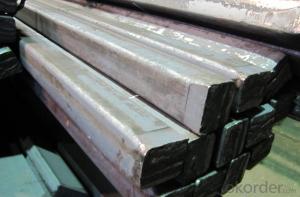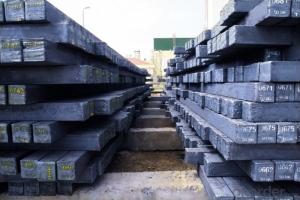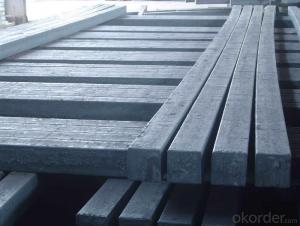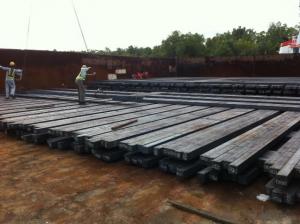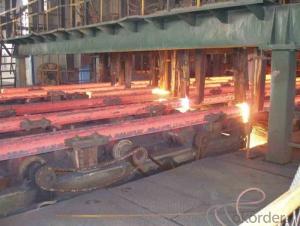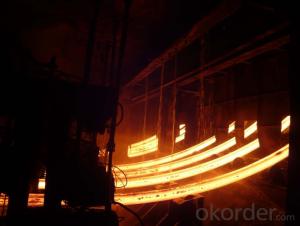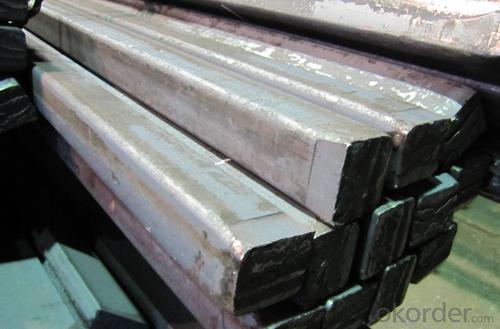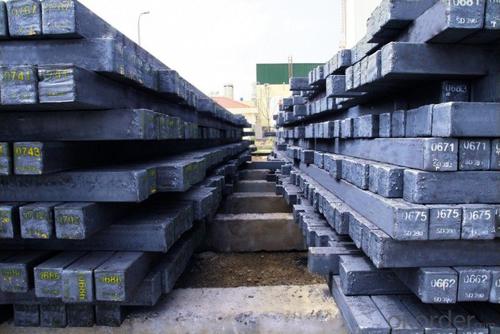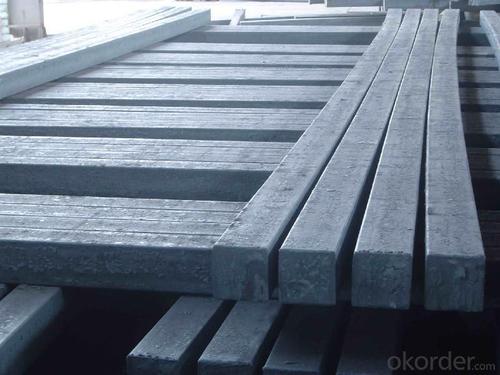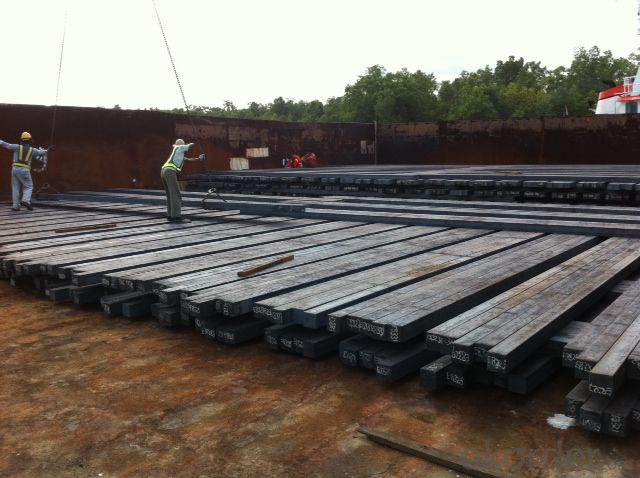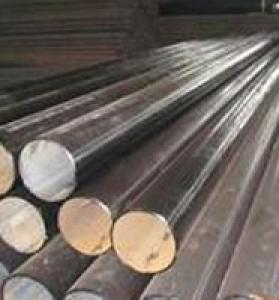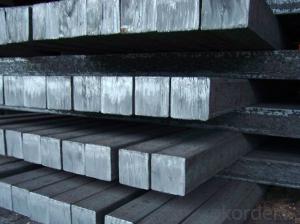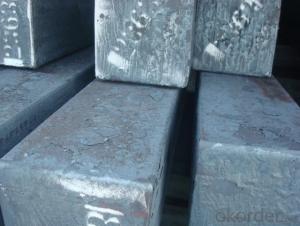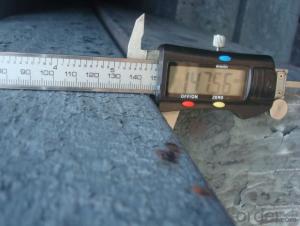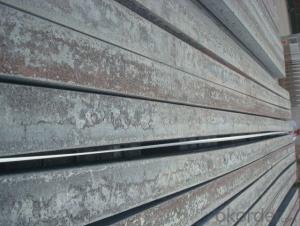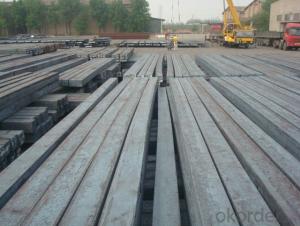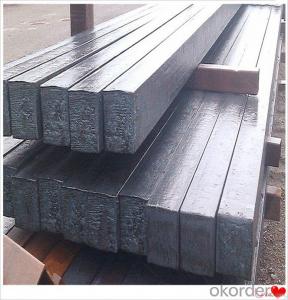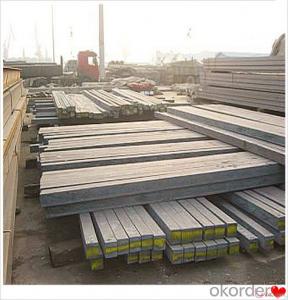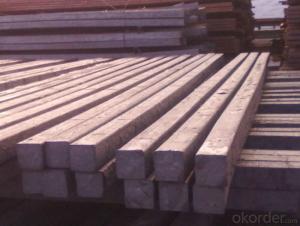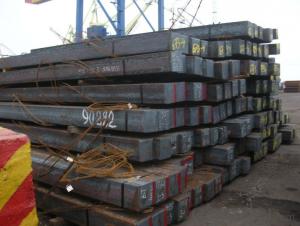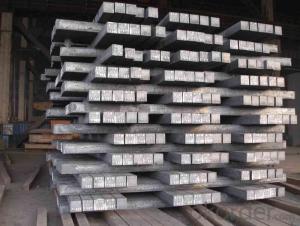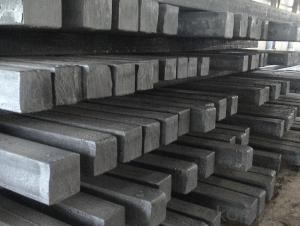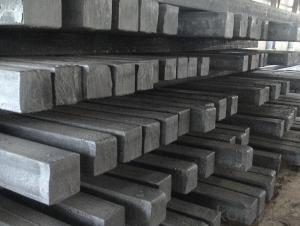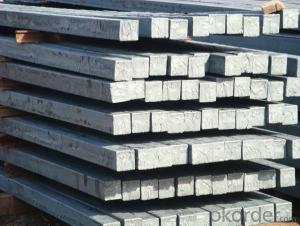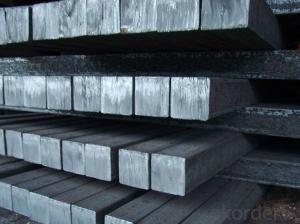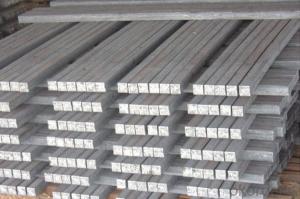Square Steel Billet Q235 3SP Grade Prime Quality 2#
- Loading Port:
- Tianjin
- Payment Terms:
- TT OR LC
- Min Order Qty:
- 2000 m.t
- Supply Capability:
- 50000 m.t/month
OKorder Service Pledge
OKorder Financial Service
You Might Also Like
Description of Square Steel Billet Q235 3SP Grade Prime Quality 2#
M. S. Billets are used for rolling of TMT Re-Bars of Fe415 and Fe500 Grade and various other structural steel products.
CRS Billets are used for rolling of CRS TMT Re-Bars.
Special Alloy Billets are used for rolling of any special grade TMT Re-Bars like Earthquake resistant TMT Re-Bars and for special grade structural steel products.
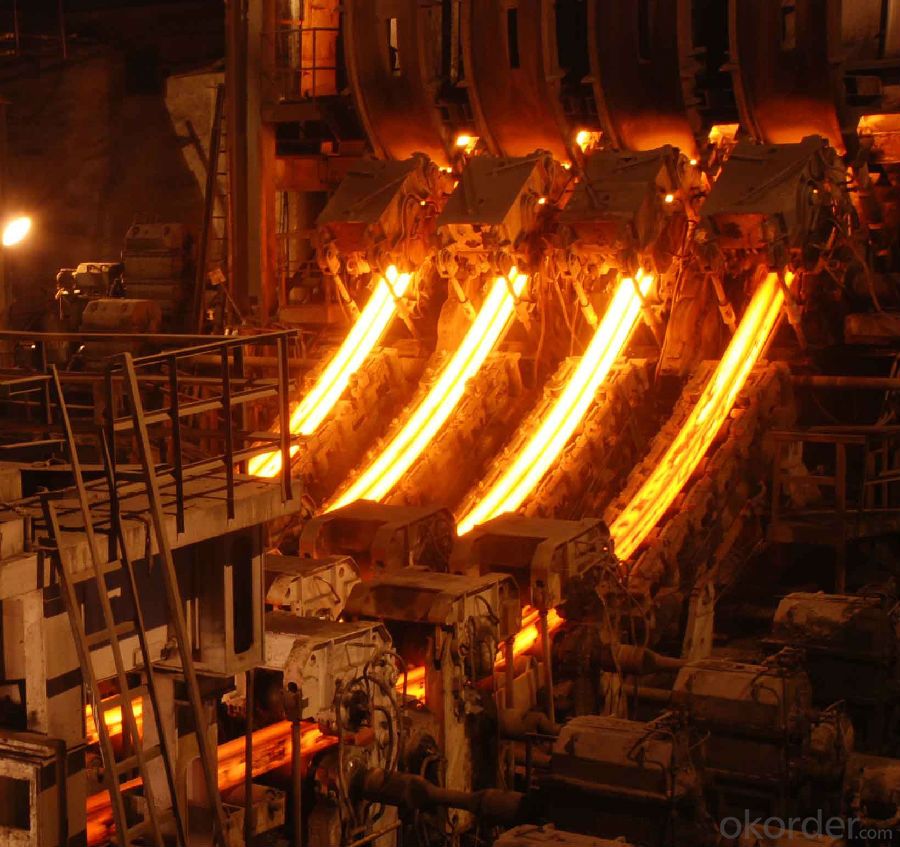
Main Feature Square Steel Billet Q235 3SP Grade Prime Quality 2#
Raw elements(C,Fe,Ni,Mn,Cr,Cu.)---Smelted ingots by AOD finery---hot rolled into black suface---pickling in acid liquid---cold drawn----polished by automatically machine--- cutting into pieces---checking quanlity
Applications of Square Steel Billet Q235 3SP Grade Prime Quality 2#
Widely Used in the areas such as Stainless Steel Fasteners, Chains, Kitchen and Sanitary wares, Furniture handles, Handrails, Electroplating and Electrolyzing pendants, Foods, Electron, Petroleum, Construction and Decoration, etc. Products have a high strength after cold-working. Electronic products parts, Medical appliance, Springs, Bus Inside and Outside packaging and building, Street Lamp Posts, etc. Decoration materials and Outdoor Publicity Billboard. Used for the products which have the Anti-Stress Corrosion requirement. Electron Products, Table-wares, Bolts, Nuts, Screen Meshes, Cumbustors and so on.
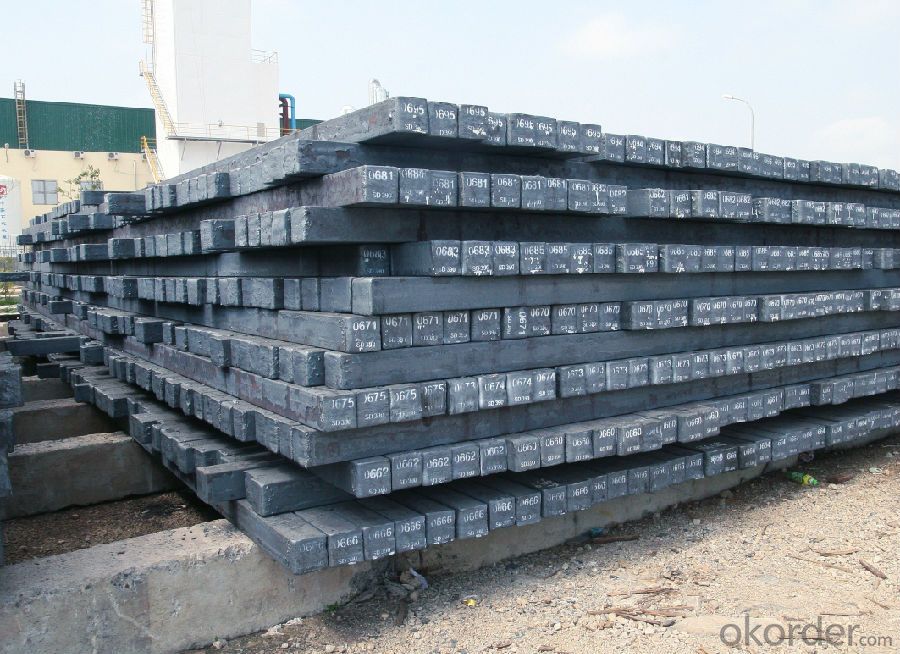
Specifications of Square Steel Billet Q235 3SP Grade Prime Quality 2#
| Standard | C(%) | Mn(%) | S(%) | P(%) | Si(%) |
| Q195 | ≤0.12 | ≤0.50 | ≤0.040 | ≤0.035 | ≤0.30 |
| Q235 | ≤0.20 | ≤1.40 | ≤0.045 | ≤0.045 | ≤0.35 |
| Q275 | ≤0.22 | ≤1.50 | ≤0.045 | ≤0.045 | ≤0.35 |
| 20MnSi | 0.17-0.25 | 1.2-1.6 | ≤ 0.050 | ≤ 0.050 | 0.40-0.80 |
| 3SP | 0.14-0.22 | 0.40-0.85 | ≤ 0.050 | ≤ 0.040 | 0.05-0.15 |
| 5SP | 0.28-0.37 | 0.50-1.00 | ≤ 0.050 | ≤ 0.040 | 0.15-0.30 |
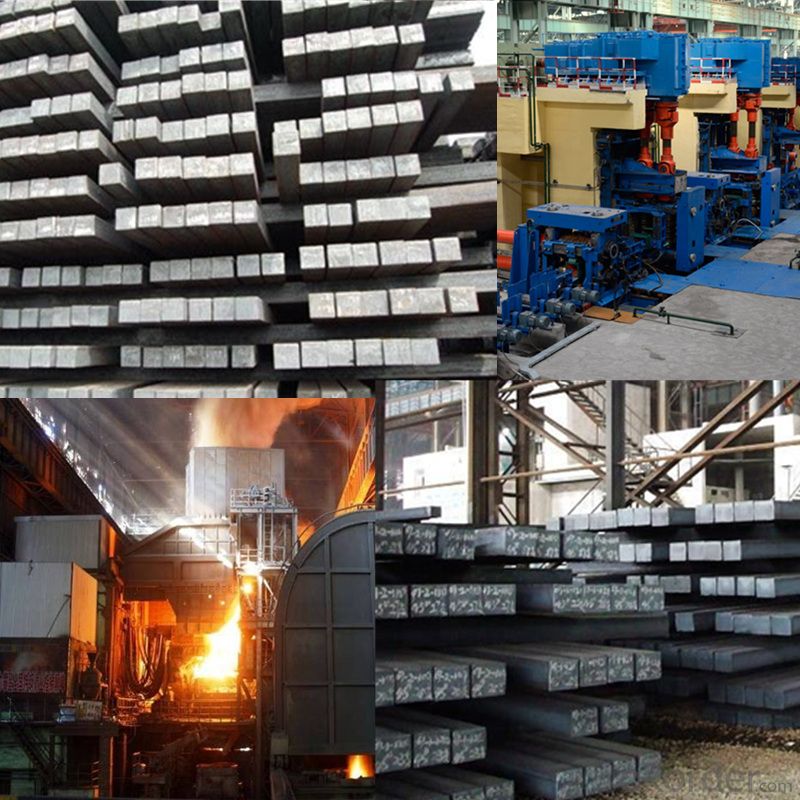
FAQ of Square Steel Billet Q235 3SP Grade Prime Quality 2#
We have organized several common questions for our clients,may help you sincerely:
1. How Can I Visit There?
Our company is located in Tianjin City, China, near Beijing. You can fly to Tianjin Airport Directly. All our clients, from home or aboard, are warmly welcome to visit us!
2. How Can I Get Some Sample?
We are honored to offer you sample.
3. Why choose CNBM?
Our delivery time about 15-20days for standard sizes, if you have other requirements like hardness, quanity and width ,it is about 20-40days. But don't worry we also try our best for the delivery time ,because time longer and our cost is higher.
- Q: What are the different types of defects found in steel billets?
- Steel billets can commonly exhibit various types of defects. These defects may arise from the manufacturing process or external factors. A range of defects is often found in steel billets, including the following: 1. Surface defects: These defects are visible on the billet's surface and can comprise scale, scratches, cracks, or pits. Improper handling, inadequate cleaning, or excessive heat during manufacturing can lead to surface defects. 2. Internal defects: These defects are not apparent on the surface and can only be identified through non-destructive testing methods. Voids, inclusions, segregation, or non-uniform microstructures are examples of internal defects. They can impact the steel billet's mechanical properties and overall quality. 3. Decarburization: Exposure to high temperatures or oxygen can cause the surface layer of the billet to lose its carbon content, resulting in decarburization. This defect weakens the billet, reducing its strength and hardness. 4. Shrinkage cavities: When the steel billet solidifies and contracts unevenly, shrinkage cavities form. These cavities can compromise the mechanical properties and structural integrity of the billet. 5. Surface cracks: During the cooling and solidification process, thermal stresses can cause cracks to develop in the billet's surface. These cracks can extend into the interior, leading to additional defects and potential failure. 6. Segregation: Segregation refers to the uneven distribution of elements or impurities within the steel billet. This inconsistency can result in varying mechanical properties, reduced strength, and poor machinability. 7. Inclusions: Inclusions are foreign particles or impurities that become trapped within the steel billet during manufacturing. These inclusions can affect the mechanical properties and cause defects like porosity or brittleness. To ensure high-quality finished products, it is crucial to minimize and control these defects in steel billets. Implementing proper quality control measures, handling materials appropriately, and refining manufacturing processes can help reduce the occurrence of these defects and enhance the overall quality of steel billets.
- Q: What are the different shapes and forms of steel billets?
- Steel billets come in a variety of shapes and forms depending on their intended use and manufacturing process. The most common shapes of steel billets include square, rectangular, round, and hexagonal. These shapes are typically achieved through a process called casting, where molten steel is poured into a mold and left to solidify. Square billets are the most commonly used shape and are often produced for rolling into long products like bars, rods, and wire. Rectangular billets, which have longer sides compared to their width, are also used for rolling into long products but are typically used for applications that require a larger cross-sectional area. Round billets, as the name suggests, are cylindrical in shape and are primarily used for the production of seamless tubes, pipes, and other tubular products. The round shape is preferred for these applications as it allows for a more uniform distribution of stresses during the manufacturing process. Hexagonal billets have six sides and are often used for forging and machining applications. The unique shape of hexagonal billets provides greater strength and stability, making them suitable for producing high-quality components, such as bolts, nuts, and other fasteners. In addition to these common shapes, steel billets can also come in custom shapes and sizes depending on specific requirements. These custom shapes are often achieved by using specialized molds or by further processing the billets through techniques like extrusion or hot rolling. Overall, the different shapes and forms of steel billets allow for the production of a wide range of steel products, each suited to its specific application and manufacturing process.
- Q: How are steel billets used in the manufacturing of shipbuilding components?
- The manufacturing of shipbuilding components relies heavily on steel billets, which are indispensable raw materials. These components, including hulls, decks, bulkheads, and other structural parts, are crucial for ship construction. To begin the process, steel billets are heated in a furnace to a specific temperature, rendering them malleable. This crucial step, known as hot rolling, allows the billets to be shaped into the desired forms and sizes required for shipbuilding components. In addition to shaping, hot rolling also enhances the mechanical properties of the steel, making it stronger and more durable. Once the billets are heated and shaped, they undergo further processing through various techniques such as forging, extrusion, or casting, depending on the specific shipbuilding components needed. For instance, steel billets can be forged to create large and intricate parts like ship propellers or rudders. Extrusion, on the other hand, is employed to form long and continuous shapes like shipbuilding beams or pipes. Casting is utilized for intricate components such as engine parts or valves. Following the initial shaping process, the steel components go through various finishing operations including machining, welding, and surface treatment. Machining ensures the achievement of precise dimensions and smooth surfaces necessary for the proper fitting and functioning of shipbuilding components. Welding is employed to join different steel components together, ensuring structural integrity and strength. Surface treatment techniques such as painting or galvanizing are applied to protect the components from corrosion and extend their lifespan. Overall, steel billets are of utmost importance in shipbuilding as they serve as the essential raw material for manufacturing a wide range of components. Their versatility, strength, and durability make them ideal for constructing ships that can withstand the harsh marine environment. By utilizing steel billets along with advanced manufacturing techniques, high-quality shipbuilding components that adhere to stringent industry standards can be produced.
- Q: What do you mean by adding carbon to a table tennis racket?
- What a professional? I don't know what is known but with carbon carbon line take this hit the ball the more comfortable to take shape
- Q: How are steel billets used in the manufacturing of mining components?
- Steel billets are used in the manufacturing of mining components as raw material that is shaped and machined to create various parts and equipment needed in the mining industry. These billets are typically heated, rolled, and then forged or machined to form components such as gears, shafts, and structural parts that are essential for mining machinery and equipment to function efficiently and withstand the harsh conditions of mining operations.
- Q: Are steel billets affected by extreme temperatures?
- Yes, steel billets can be affected by extreme temperatures. High temperatures can cause the billets to soften and become more malleable, making them easier to shape or deform. On the other hand, extremely low temperatures can make the steel brittle and prone to cracking or fracturing. Therefore, it is important to carefully control and monitor the temperature conditions during the production and processing of steel billets.
- Q: How are steel billets used in the production of bars and rods?
- Bars and rods rely on steel billets as a crucial raw material. These billets, typically produced through continuous casting, are solid blocks of semi-finished steel with a square or rectangular shape. To convert steel billets into bars and rods, multiple steps are involved. Initially, the billets are heated in a furnace to a specific temperature, making them more malleable. This heating process, known as soaking, ensures a uniform composition and enhanced plasticity of the steel. Once the billets reach the desired temperature, they undergo hot rolling, which involves passing them through a series of rollers. The rollers gradually decrease the cross-sectional area of the billets, elongating them into long and slender shapes. This hot rolling process refines the grain structure, aligns the crystalline structure, and enhances the mechanical properties of the steel. Following hot rolling, additional processes like cooling, straightening, and cutting are often applied to the bars and rods. Cooling is vital to prevent brittleness, while straightening guarantees the desired shape and dimensions of the final product. Ultimately, the bars and rods are cut into specific lengths, ready for use in various industries such as construction, automotive, and manufacturing. In conclusion, steel billets serve as the foundation for the production of bars and rods. Through reheating, hot rolling, and subsequent treatments, these billets are transformed into durable and high-quality bars and rods, widely utilized across different applications.
- Q: Can steel billets be used in the production of utensils and cutlery?
- Utensils and cutlery can indeed be produced using steel billets. These semi-finished products have the potential to be transformed into a variety of shapes and forms, including utensils and cutlery. The remarkable properties of steel, such as its strength, durability, and resistance to corrosion, make it an ideal choice for manufacturing these items. In the production process, steel billets are often melted and cast into specific shapes. They are then further processed through techniques like forging, stamping, or machining to create the desired utensils and cutlery items. The range of final products is extensive, encompassing not only spoons, forks, and knives but also more intricate items like serving spoons, ladles, and cheese slicers. Steel utensils and cutlery are highly regarded and widely used due to their long-lasting nature and hygienic qualities.
- Q: How are steel billets tested for internal defects?
- Steel billets are tested for internal defects through a variety of non-destructive testing methods. One of the most common methods used is ultrasonic testing (UT). During this process, high-frequency sound waves are transmitted into the billet, and the reflections of these waves are analyzed to detect any internal defects such as cracks, voids, or inclusions. UT can provide accurate and detailed information about the size, location, and nature of the defects. Another method used is magnetic particle inspection (MPI). This technique involves magnetizing the billet and applying iron particles to its surface. If there are any internal defects, the magnetic field will cause these particles to gather around them, making them visible and detectable. Eddy current testing (ECT) is also employed to assess the internal quality of steel billets. It utilizes electromagnetic induction to create eddy currents within the material. Any changes in the electrical conductivity or magnetic permeability caused by internal defects can be detected by analyzing the variations in the induced current. Additionally, radiographic testing (RT) is utilized to inspect the internal structure of steel billets. X-rays or gamma rays are directed towards the billet, and the resulting radiographic image can reveal any internal defects such as voids, cracks, or inclusions. Other methods, such as dye penetrant testing and visual inspection, can also be used to detect superficial and near-surface defects in steel billets. These methods involve applying a liquid or dye to the surface of the billet, which will seep into any cracks or surface irregularities, making them visible under certain lighting conditions. Overall, a combination of these non-destructive testing methods is employed to ensure the quality and integrity of steel billets by effectively detecting any internal defects that could compromise their structural integrity and performance.
- Q: How do steel billets contribute to the automotive industry?
- Steel billets play a crucial role in the automotive industry by serving as the primary raw material for the production of various automotive components. These components include engine parts, transmission systems, chassis, suspension systems, and other critical components that ensure the safety, performance, and durability of vehicles. One of the key contributions of steel billets to the automotive industry is their exceptional strength and durability. Steel is renowned for its high tensile strength, which allows it to withstand extreme forces and provide structural integrity to automotive components. This strength is particularly important in areas such as the frame, where it ensures the safety of passengers in the event of a collision. Additionally, steel billets offer excellent formability and versatility, allowing manufacturers to create intricate and complex automotive parts with precision. This enables the production of components that meet the specific design requirements of different vehicle models, ensuring optimal performance and functionality. Steel billets also contribute to the automotive industry by providing cost-effectiveness. Steel is a relatively affordable material compared to alternatives such as aluminum or carbon fiber. Its widespread availability and production efficiency make it a cost-effective choice for mass production, helping to keep vehicle prices reasonable for consumers. Moreover, steel billets possess excellent heat resistance and thermal conductivity properties. This makes them ideal for use in engine components, such as pistons and cylinder heads, where they can withstand high temperatures and efficiently transfer heat. Furthermore, steel billets contribute to the sustainability of the automotive industry. Steel is a highly recyclable material, with a recycling rate of around 90%. This allows for the eco-friendly disposal and reuse of steel components, reducing the environmental impact of the automotive manufacturing process. In summary, steel billets play a vital role in the automotive industry by providing the strength, durability, formability, and cost-effectiveness necessary for the production of various automotive components. Their versatility and recyclability further contribute to the sustainability of the industry. Without steel billets, the automotive industry would struggle to produce safe, reliable, and affordable vehicles.
Send your message to us
Square Steel Billet Q235 3SP Grade Prime Quality 2#
- Loading Port:
- Tianjin
- Payment Terms:
- TT OR LC
- Min Order Qty:
- 2000 m.t
- Supply Capability:
- 50000 m.t/month
OKorder Service Pledge
OKorder Financial Service
Similar products
Hot products
Hot Searches
Related keywords
